
OR
Managing monsoon floods amid COVID-19
Published On: June 11, 2020 03:00 PM NPT By: Suman Kumar Karna
Monsoon is just at the doorstep. Few towns and cities are already submerged. The coming days are going to be more tough and cruel. This year we are in no different condition. The situation is rather worse. We have to prepare and fight multiple disasters, while we are already threatened by COVID-19 pandemic.
For Dalits, love is forbidden
Published On: June 11, 2020 01:07 PM NPT By: Giri Bahadur Sunar
Have you ever heard a Brahmin man murdered for marrying a Dalit woman? At least, I have not. Love is blind, it is said. But I say love has eyes of caste, race, ethnicity, religion, sex, wealth, and geography. The provision of the constitution that all adults, irrespective of their gender and caste, can choose their partners sounds like a false promise.
Oli must go, but what’s the alternative?
Published On: June 11, 2020 11:40 AM NPT By: Jagannath Lamichhane
After weeks of anger and frustration, a group of young people took to the streets of Baluwatar to demand accountability from this government. The COVID-19 response from this government has been dismal: testing rates are low, RDTs reign over PCR tests, quarantines are poorly managed – hotbeds for disease-- and there seems to be no real strategy to address the impending economic fallout and the long-term management of returning migrant workers. Nepali Congress MP Gagan Thapa rightly repeated what was being said all over social media the last few weeks yesterday in parliament: Where did the $1.3 billion spent on COVID-19 response go? Are the border quarantines fast becoming ‘concentration camps’? A series of failures have emerged as a result of what seems to be a reactive approach to governance.
Why diagnostic testing is important to control possible complications from coronavirus
Published On: June 11, 2020 10:00 AM NPT By: Lata Ghimire
In the month of December 2019, a unique and mysterious disease outbreak in the Wuhan city of China caused respiratory illness. It has since then spread globally, resulting in the pandemic. COVID-19 is a highly contagious cause of coronavirus. The infected patients have reported mild to severe acute respiratory syndrome. Common symptoms of the disease include fever, cough and shortness of breath. Other symptoms may include fatigue, muscle pain, diarrhea, sore throat, loss of smell and abdominal pain. While a majority of the cases result in mild symptoms, some progress to severe health problems, causing severe viral pneumonia and multi-organ failure.
Explaining the pandemic performance differential
Published On: June 10, 2020 05:00 PM NPT By: Jim O’Neill
LONDON – I recently re-read and reflected on everything I have written for Project Syndicate since the start of this year. Two commentaries, in particular, stood out. In January, I suggested that without a new surge in productivity, the world would struggle to achieve the same level of economic growth in the 2020s as it did in previous decades.
Program for the poor
Published On: June 10, 2020 02:17 PM NPT By: Tara Kanel
Basic income security is a human right guaranteed by the Human Rights Declaration 1945, International Covenant on Economic, Social and Cultural Rights 1966, and other international human rights instruments. Article 33 of the Constitution of Nepal 2015 guarantees employment as a fundamental right to all Nepali citizens. In 2018, the federal parliament enacted the Employment Rights Act (ERA), which requires Government of Nepal (GoN) to provide at least 100 days of employment annually to the unemployed or provide half of the minimum wage for 100 days should it fail to provide employment.
Nawaraj: The spark that will light the fire
Published On: June 10, 2020 12:31 PM NPT By: Binayak Sundas
In the last few weeks there have been two deaths that have shocked their respective nations. George Flyod who was killed in cold blood by a police officer in Minneapolis and Navaraj BK who was lynched in west Rukum in Nepal. These were not acts of mindless violence but rather part of a systematic violence meant to keep an order and quell any threat to it. Unarmed Flyod was considered to be a threat to three armed police officers as one of them chocked him to death, despite his screams for help and Navaraj whose act of walking to his lover’s house was considered to be too great a threat that he and his friends needed to be beaten, chased and then drowned in the river. They were both threatening a system, a mindset that is so afraid that it will not tolerate even a semblance of resistance and change, a system and mindset that created a certain establishment that has been working for centuries. As such both were killed long before their murderers even lifted a finger, their deaths were ordained centuries before they were even born. These were two institutional murders that have demonstrated the continuing existence and perhaps the thriving of two ancient and deep seated prejudices in human civilization: Caste and race.
Here is why the government should revise its taxation on electric vehicle
Published On: June 9, 2020 10:35 AM NPT By: Sahil Shrestha
There are approximately 1,150 four-wheeler Electric Vehicles (EVs), 4,700 electric bikes and 31,000 e-rickshaws in Nepal. Considering 1,150 four wheelers consumes 20 million rupees worth of electricity per year, and saves the fuel import of worth 100 million rupees per year. Further, operation of 1,150 four-wheelers saves 2,400 tons of CO2 emissions.
Faults of India’s Nepal policy
Published On: June 8, 2020 01:35 PM NPT By: Prem Singh Basnyat
As India stood reluctant to resolve the border matters with Nepal, the government of Nepal has published the new political map including Limpiyadhura Lipulekh and Kalapani region, the land which belongs to Nepal but which India claims and which it is even occupying. Since this incident, there have been several interpretations and discussions regarding India’s intention vis-à-vis Nepal. People are angry, sad and agitated by the recent behaviors from Indian side. But the type of response and reaction coming from Indian side and its deferral to resolving border issues through friendly peaceful diplomatic dialogues reinforces the fact that India has not changed its old habits when it comes to dealing with Nepal. For those who follow history, India’s overbearing attitude and behaviors with its neighboring countries is not new.
Time for national awakening
Published On: June 8, 2020 12:16 PM NPT By: Simone Galimberti
Murder of Nabaraj BK and a group of his friends all belonging to the Dalit community, a gruesome act of violence driven by discrimination and racism, is again bringing up latent patterns of social exclusions, structural patterns that are still dominant in the society.



Just In
- Sajha Yatayat cancels CEO appointment process for lack of candidates
- Govt padlocks Nepal Scouts’ property illegally occupied by NC lawmaker Deepak Khadka
- FWEAN meets with President Paudel to solicit support for women entrepreneurship
- Koshi provincial assembly passes resolution motion calling for special session by majority votes
- Court extends detention of Dipesh Pun after his failure to submit bail amount
- G Motors unveils Skywell Premium Luxury EV SUV with 620 km range
- Speaker Ghimire administers oath of office and Secrecy to JSP lawmaker Khan
- In Pictures: Families of Nepalis in Russian Army begin hunger strike



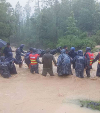
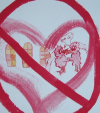
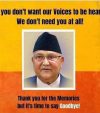


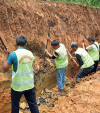

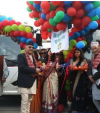
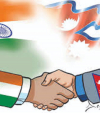











_20240419161455.jpg)
